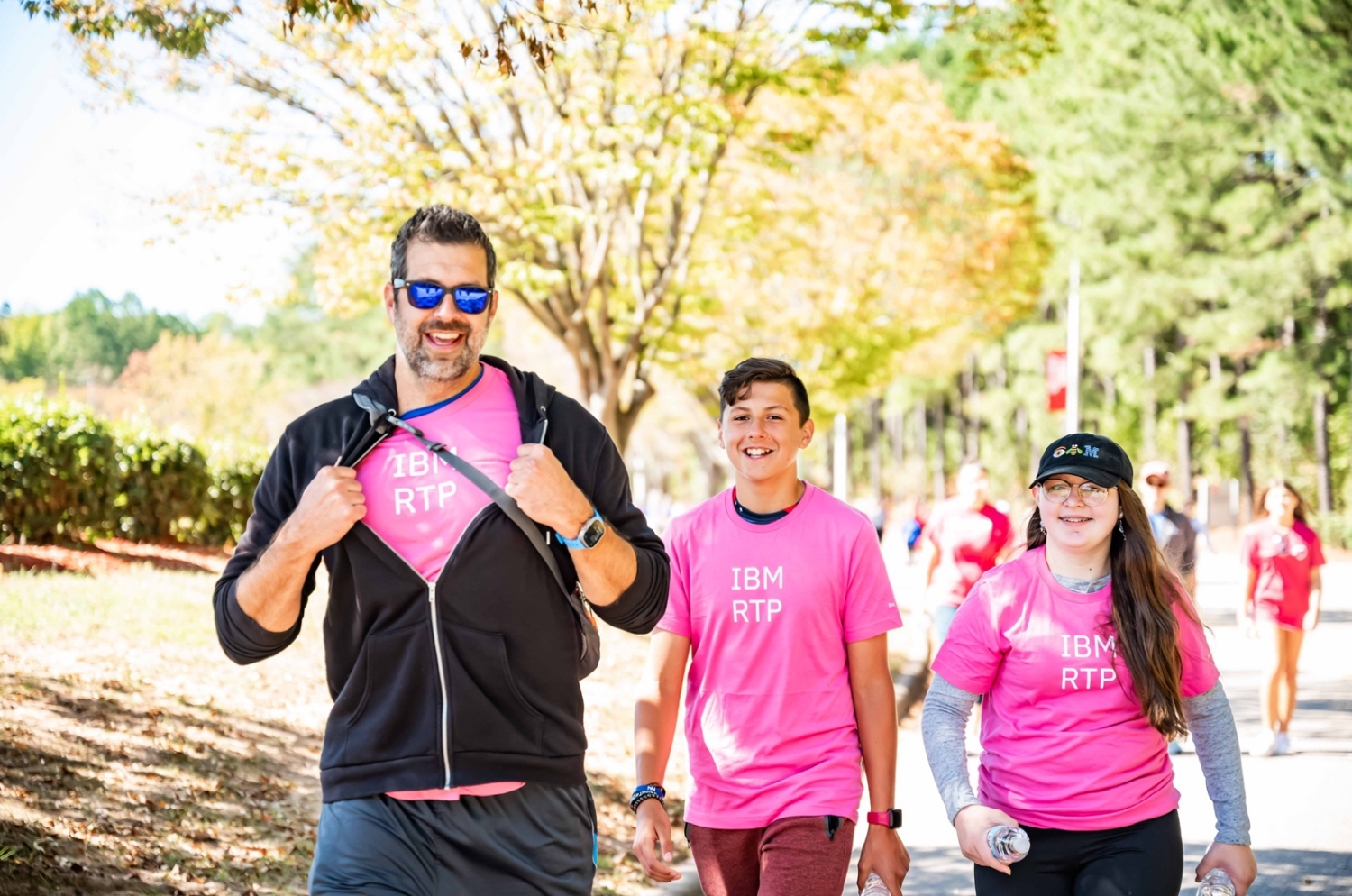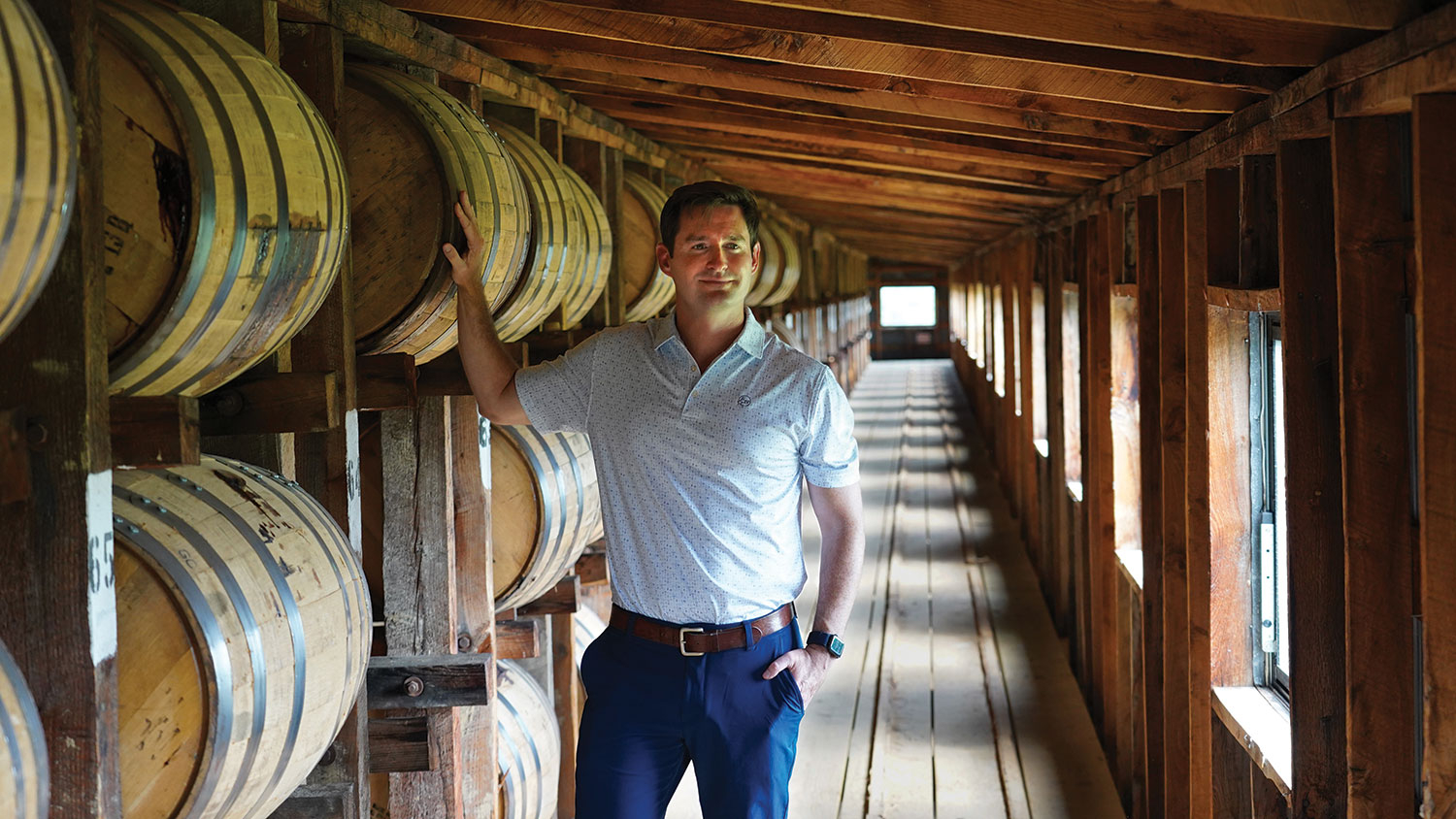Dean’s Dialogues: Get to Know Jenkins MBA Graduate Luke Hale
Hale, who got his MBA at Poole College, discusses his transition from the military to civilian life and gives advice to new students and ones in internships.

This is an installment in a series of interviews Poole College conducted with students and recent grads to learn about their college experiences. While most of these interviews were conducted by Dean Frank Buckless, this interview was conducted by Associate Dean Vikas Anand.
Luke Hale is a product manager at IBM and a retired Army lieutenant colonel. He received his MBA from the Poole College of Management in 2023. Read on to learn more. (Please note: This interview has been edited for length and clarity)
Share a little about your background, and what brought you to Poole to pursue an MBA.
I came to Poole in a nonconventional way. I did my undergrad at Virginia Military Institute, graduated in 2000, and spent 20 years as an active duty army officer, most of that time as an intelligence officer. I lived around the world, but I got to the point in 2020 where I felt I was ready to start something new. My wife and four kids are here in Raleigh, and I wanted to stay in the area. I thought my next move should be an MBA. NC State felt like the right fit. I wanted to do an in-person program. I felt like it would be good to recalibrate my mind and be around the people that would be my peers going forward. I looked at the trajectory of the Jenkins MBA and it was consistently moving up. The program is also smaller and a little more focused on knowing who we are.
How is it being back in school with four kids? What were the emotions and how did you communicate about that?
For me, personally, it was fun to be here at State. I was proud of being from a military school but being a part of a big university, with the excitement, the sports – things like tailgating with my classmates at a football game – my kids loved it. My daughters talk about going to State.
One challenge was my assumption that I could schedule it like a job, that classes would be during work hours, with maybe one here and there that’s not. My kids go to school, my wife has a job. So work hours made sense. By my second year, almost all of my courses were at night. That was a challenge for home life. But at the same time, it was nice for the kids to see their dad doing homework and writing papers. I have a lot of respect for my partner and all the work she did to support it.
Students I know who came from an Army background are successful. However, I would think that transition can be challenging. What helped you succeed?
When you spend as long in the military as I did, and you decide to come to a program like this, the transition from a regimented military environment to the collegiate atmosphere can be challenging. I found that keeping a healthy perspective was key, remembering that although it seemed every next step was into the unknown, I had been through trials before. Although it took me some time, I found ways to relate many of my military experiences to my new civilian life, and NC State gave me the space to let those connections grow.
You had a great internship that led to your job at IBM. How did you prepare for the internship?
One of the jewels of this Jenkins MBA crown is our career services folks. The preparation that they gave us was really important. Getting the internship had a lot to do with the networking and the relationships that existed between NC State and companies.
I think once in the internship, my advice would be, don’t be afraid to reach out to people and to start conversations, even those above you. If you have smart questions, they’re going to respect you for asking.
Was there advice you received that sticks out in your mind?
Know your job well. Everyone gives you a pass when you start, but eventually, you need to make an impact by knowing the details of your job. I’m a product manager – I need to know the product, I need to know the details of the product and there’s no excuse after a period of time for me not to know it.
You also have to show outcomes. That is a cultural change from the military. There, the mission is the outcome. No one asks you to show me a quantifiable result for the last six months in an action. Companies want that. Whatever you do, they want you to be able to tie it to an outcome.
If you could give two important pieces of advice to an incoming cohort, what would those be?
First, take networking seriously. It’s how I secured an internship. It’s how I secured a job. It’s what I hear as I think about how to take the next step now.
Second, really cherish the opportunities that they have here and take advantage. The work can hit and you can feel like you just need to get through the class, do the spreadsheet, take the test. But cherish it. Volunteer for everything you can. Enjoy the experience, learn something, and build those networks.
This post was originally published in Poole College of Management News.
- Categories:


